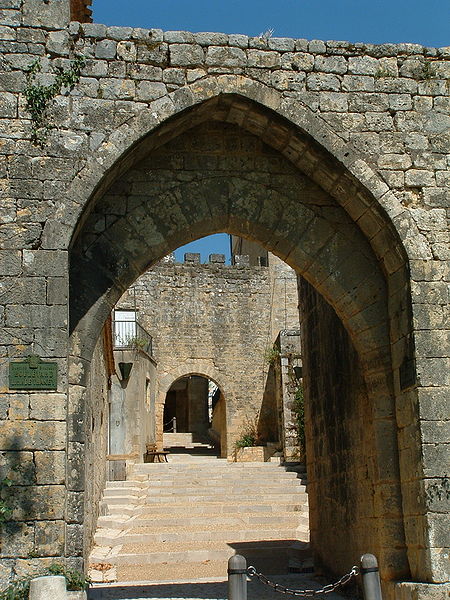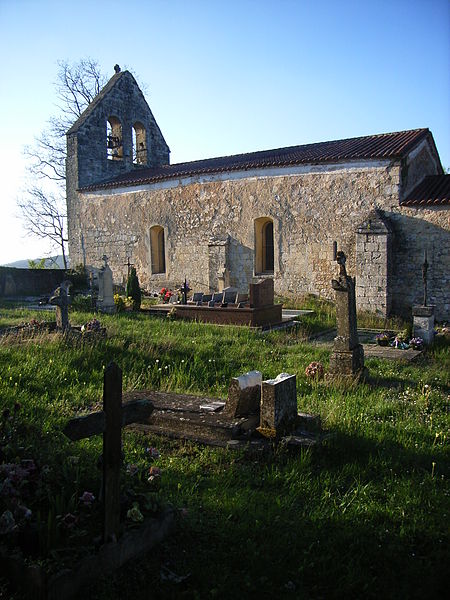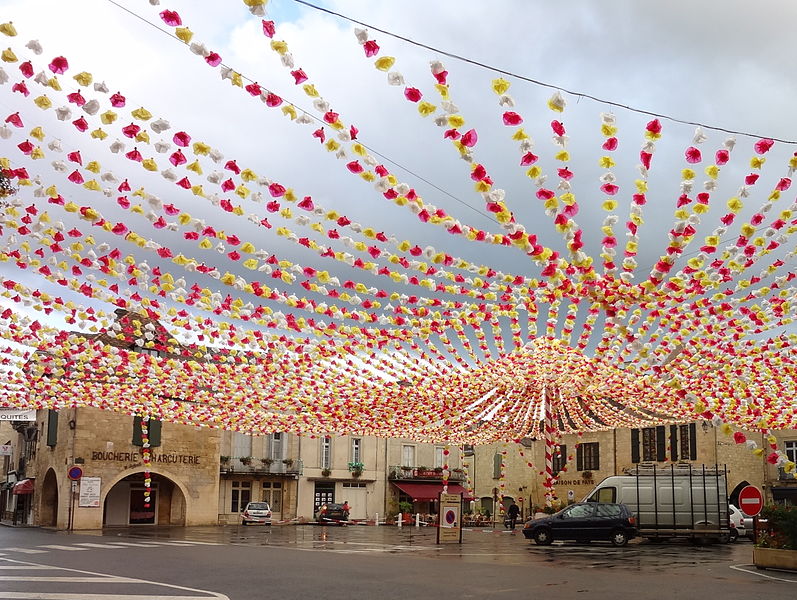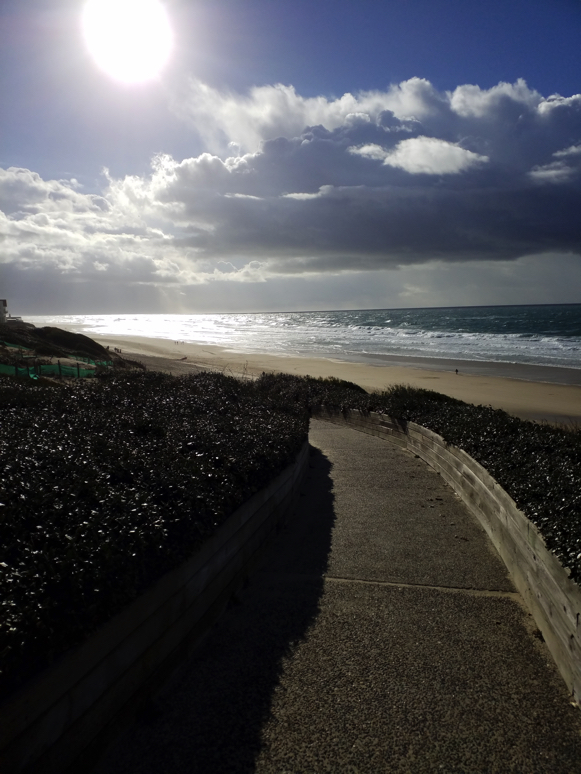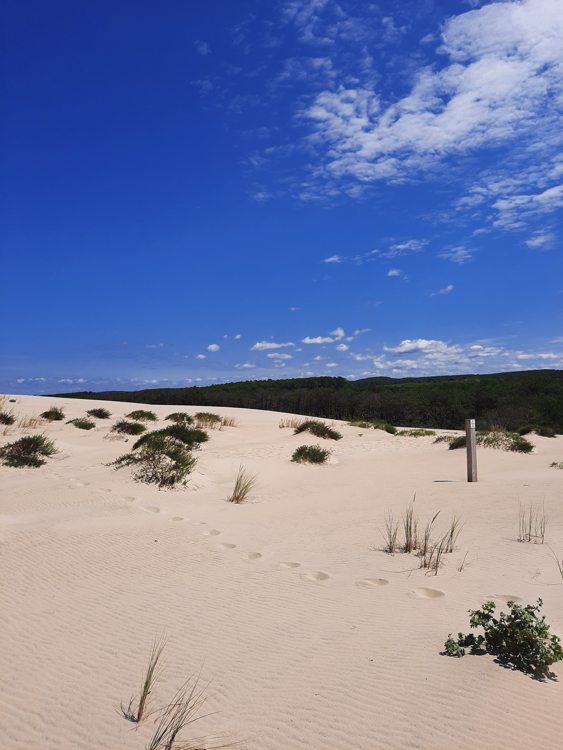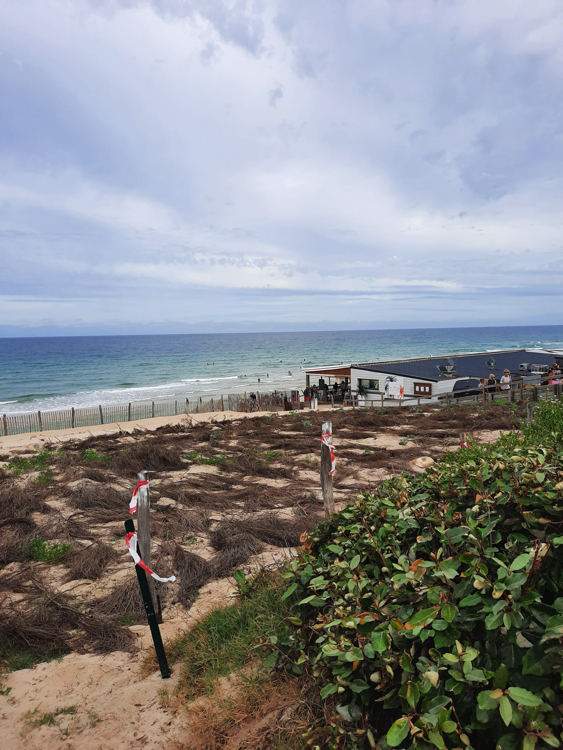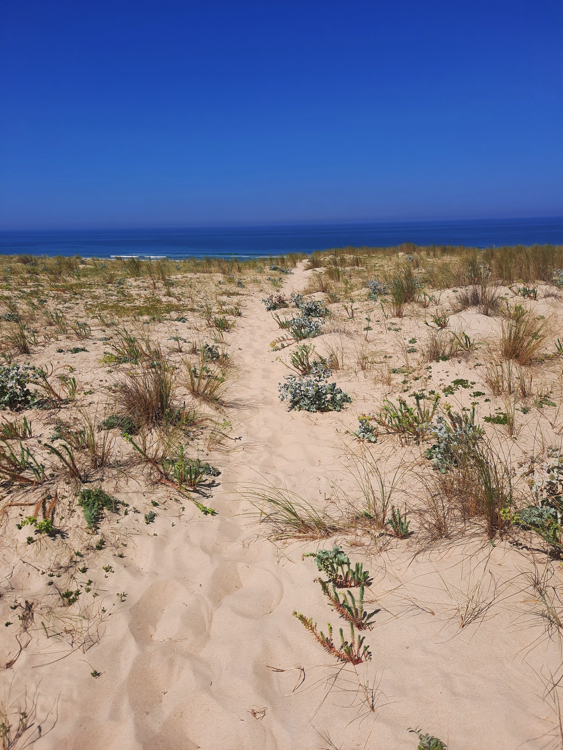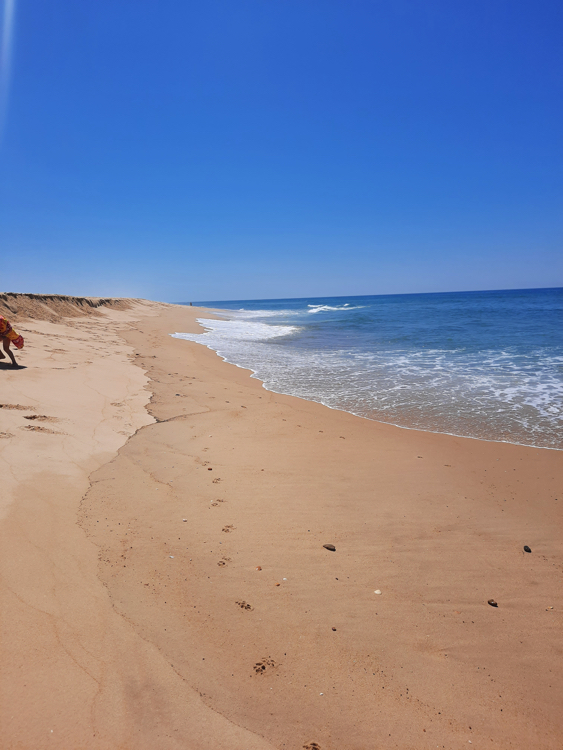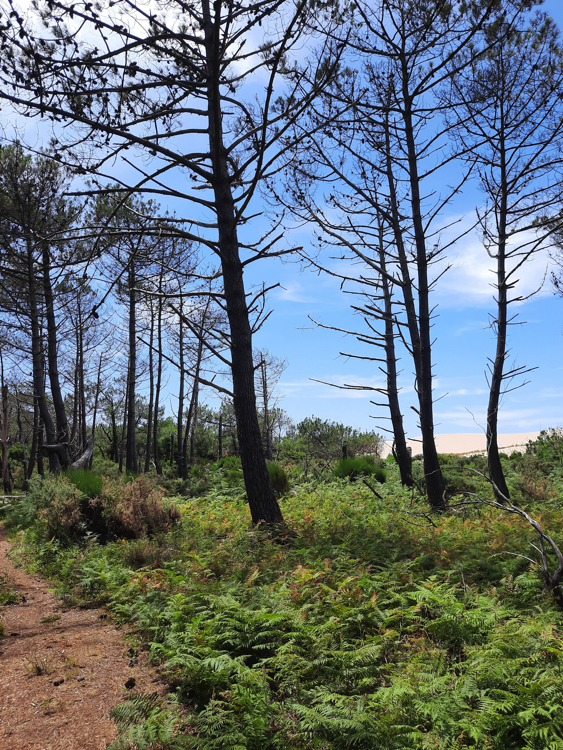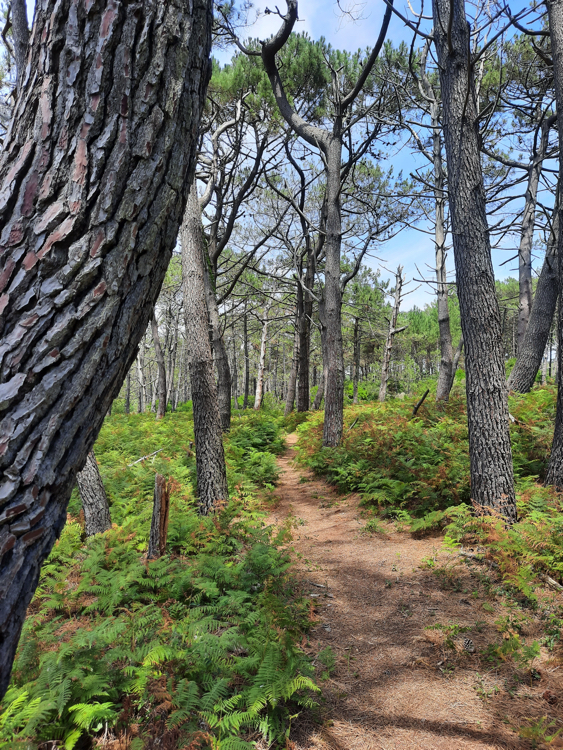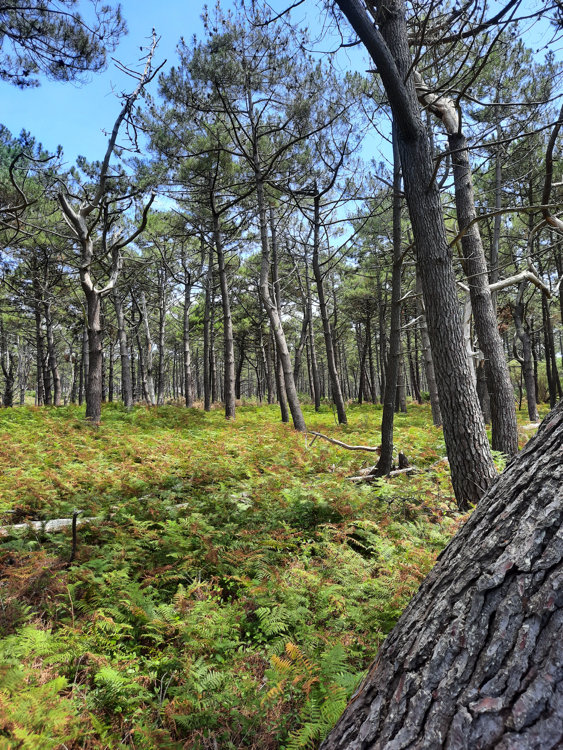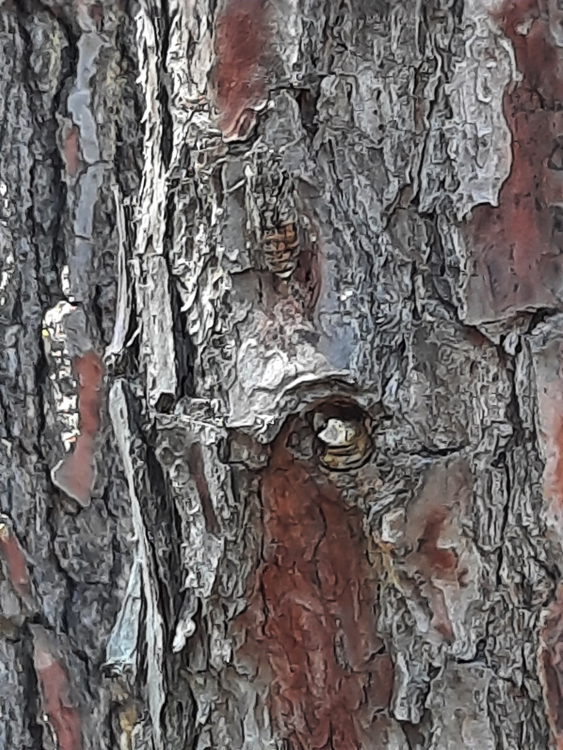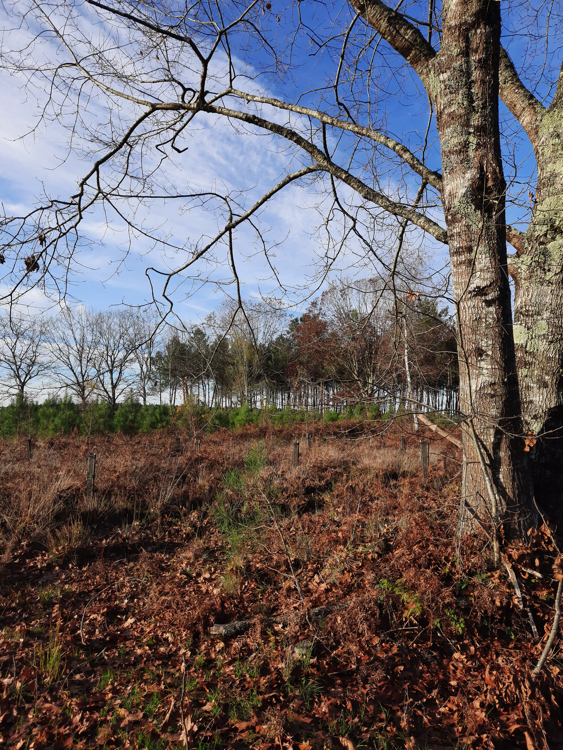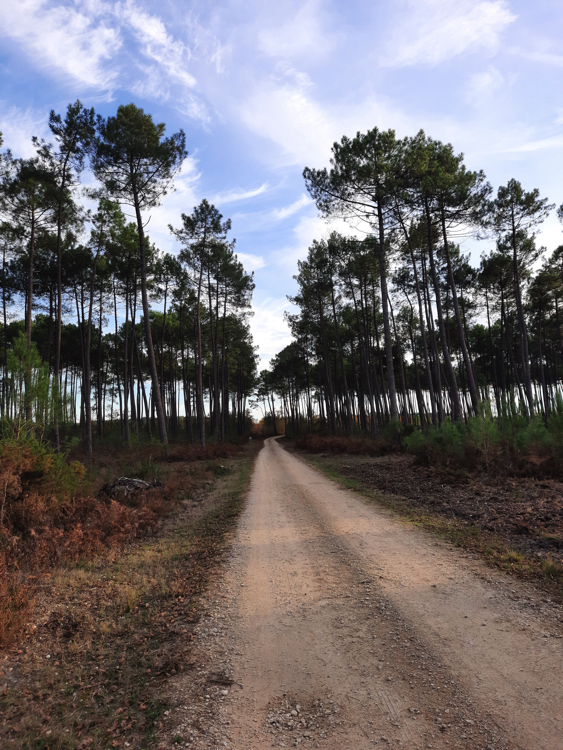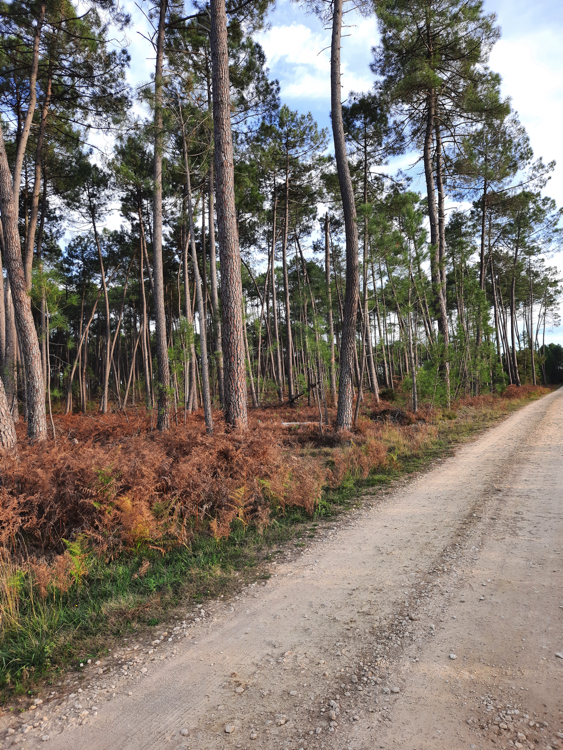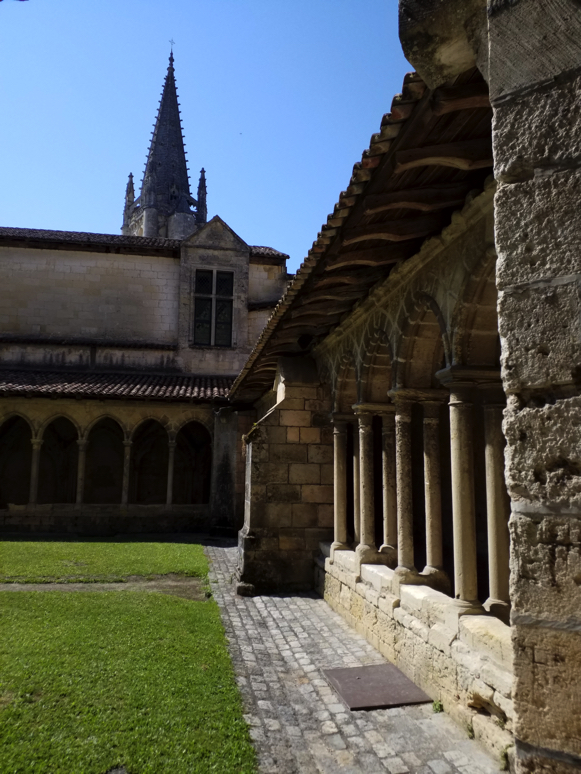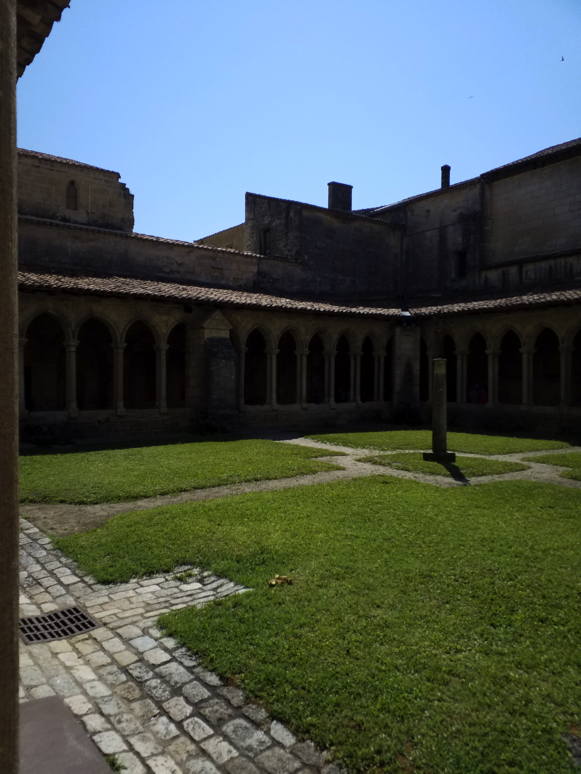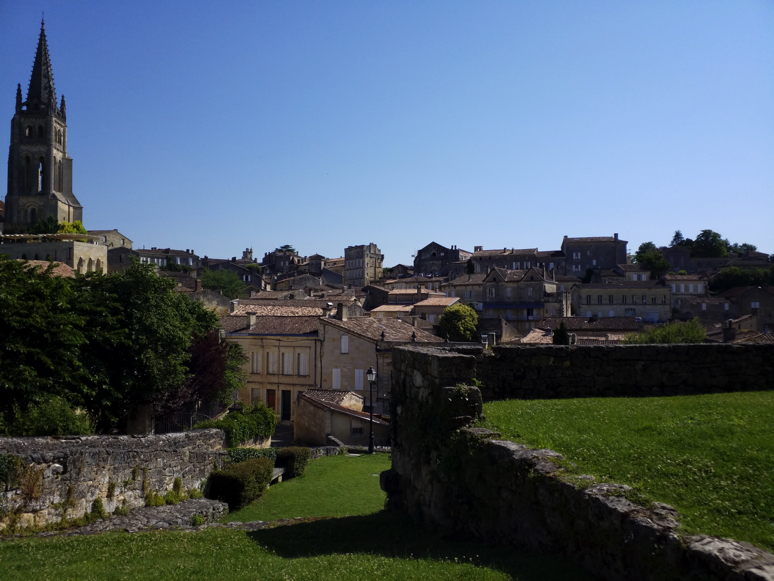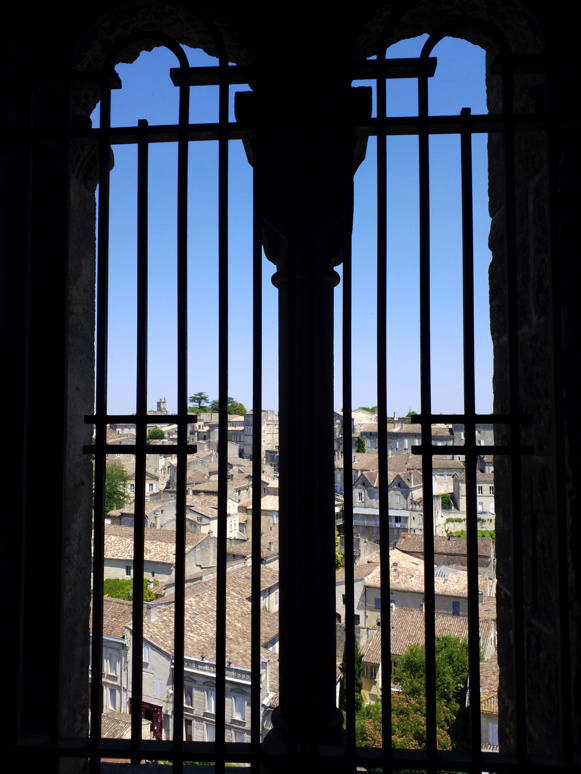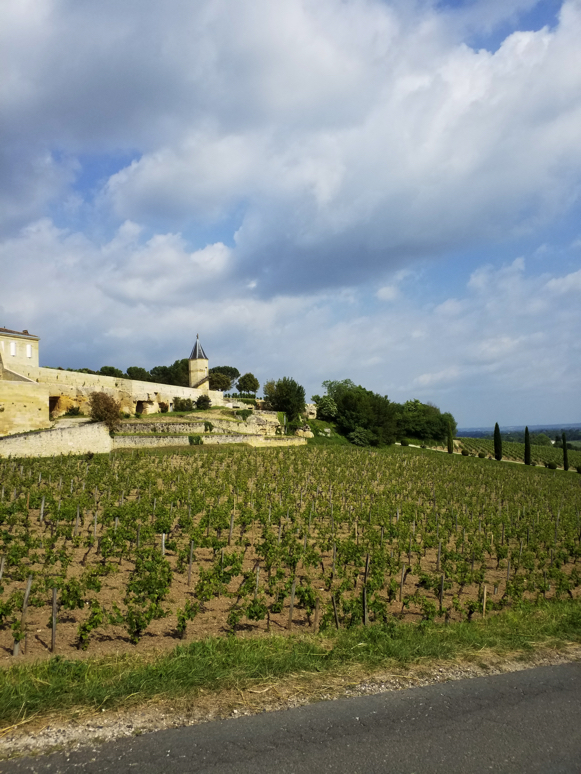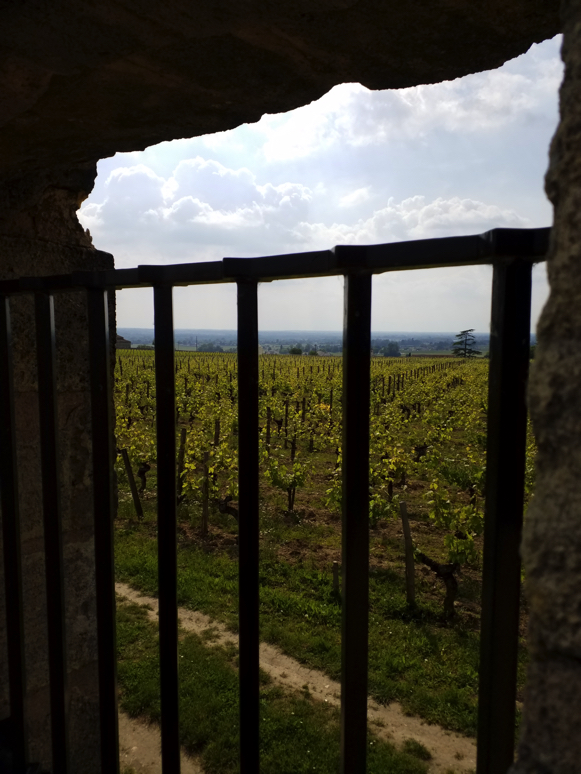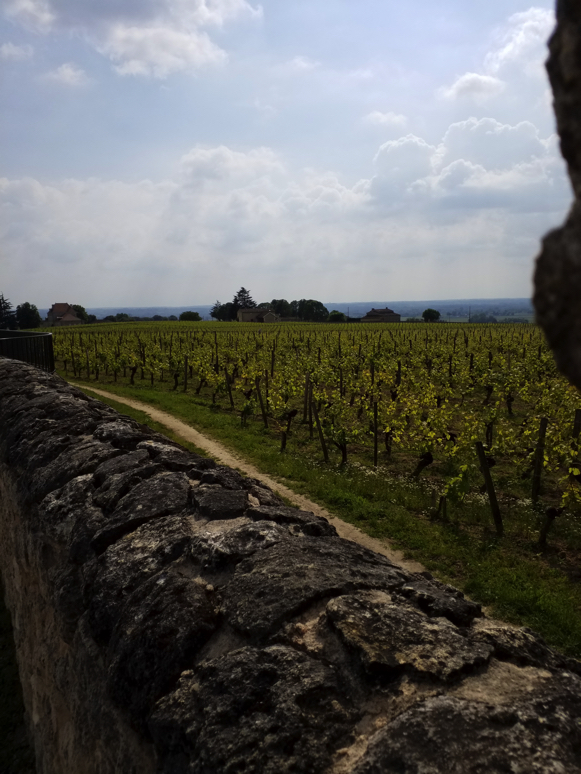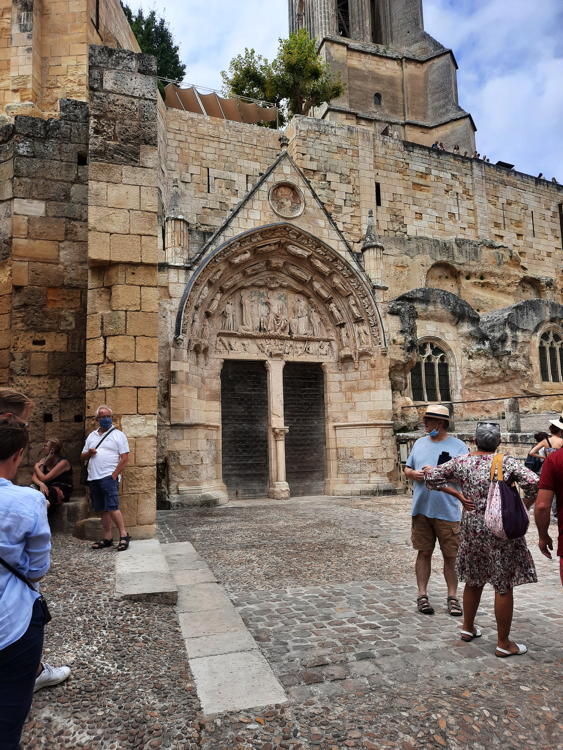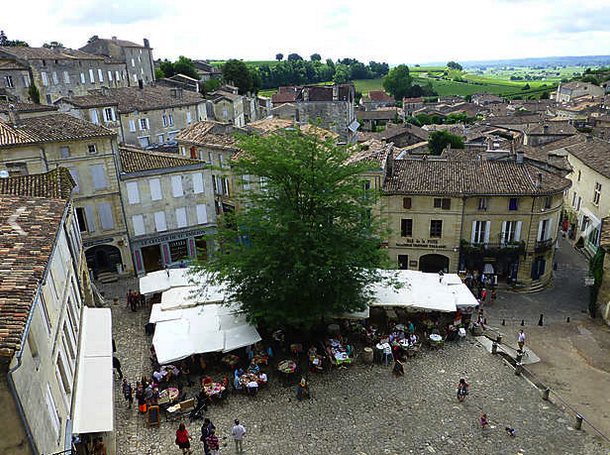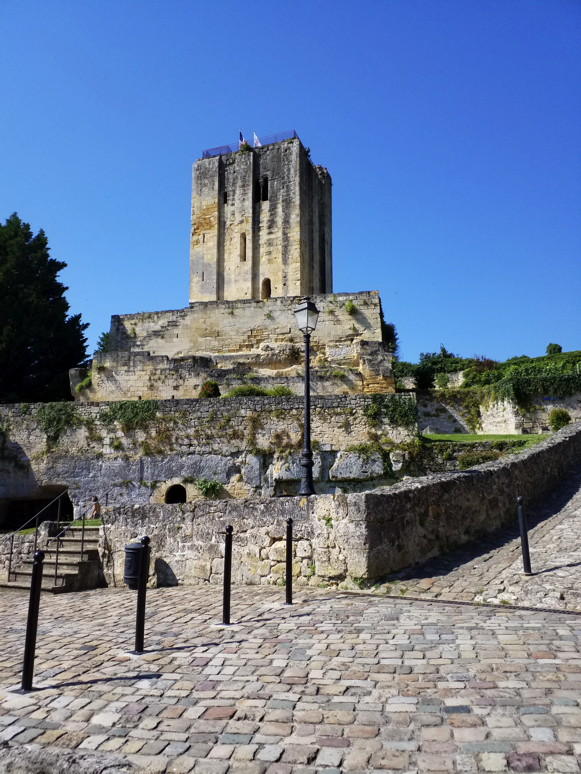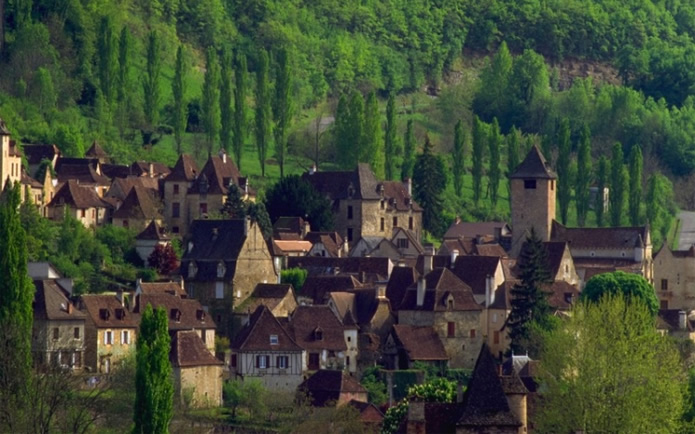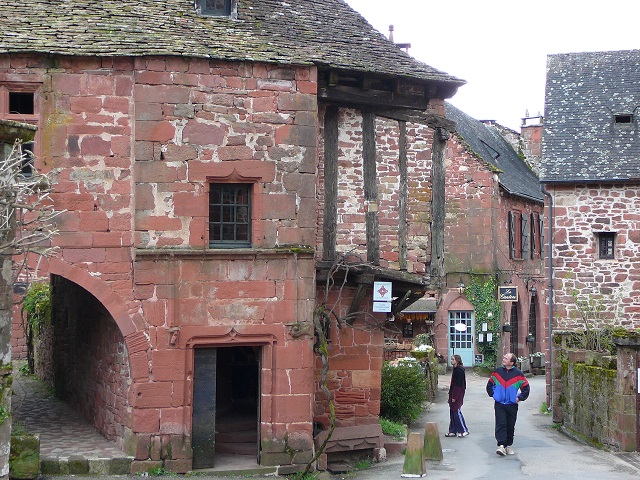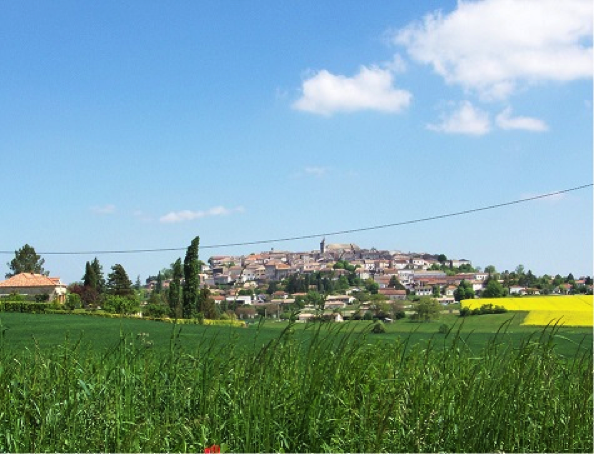Beaumont du Périgord
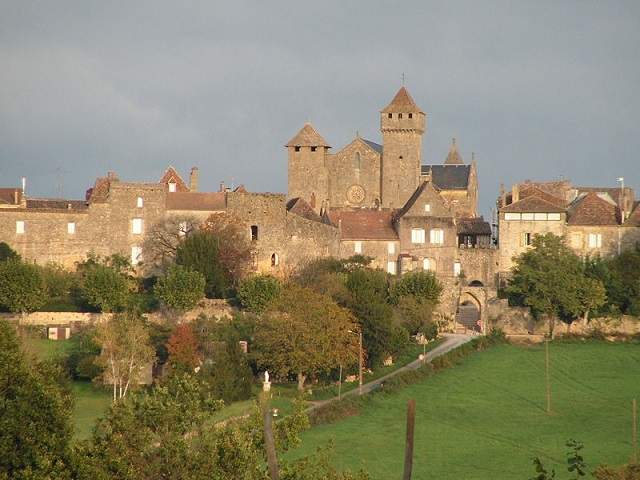
Beaumont-du-Périgord (Bèlmont de Perigòrd in Occitan) is a French commune, located in the Dordogne department, in the Aquitaine region.
English country house founded in 1272 in the name of Edward I, King of England, by Luc de Thaney, Seneschal of Guyenne. The plan of the city is in the shape of H, H like Henri. From the central square start two streets (rue Foussal and rue Romieu) forming the two arms of the "H". Its central square is surrounded by arcades called "angles" on which the shops overlook. Next to the square is the large fortified church, the size of which is disproportionate to that of the city. Beaumont-du-Périgord still has vestiges of its fortified enclosure and a recently restored medieval gate, the Porte de Luzier.
The town bore the official name of Beaumont until 2001.
Beaumont du Périgord is located in the South West of France and in the South of the Dordogne. It is a terrain made up of many hills with a strong slope from which the name Beaumont comes (like a beautiful climb). The central square is at the top of all these hills as well as the church.
HISTORY
Beaumont-du-Périgord est au départ une bastide anglaise fondée en 1272 par le sénéchal de Guyenne Lucas de Thanay au nom du roi d'Angleterre, Edouard Ier. Elle a été fondée sur des terres données par le prieur de Saint-Avit-Sénieur, l'abbé de Cadouin, et par le seigneur de Biron.
Le 15 novembre 1286, le roi Edouard Ier accorde une charte à la ville de Beaumont. C'est une lettre du roi datée de 1289 qui autorise les consuls à construire une halle sur le côté sud de la place des Cornières. Cette halle est dessinée sur le cadastre de 1840. Elle a été détruite pour cause de vétusté en 1864.
La ville est construite suivant un plan de rues droites se coupant à angles droits. La place centrale est entourée de cornières. Elle a un plan presque rectangulaire mesurant, dans l'enceinte, 338 mètres par 137 mètres. Chaque côté de la place comprenait 4 maisons dont le premier étage s'avance sur la place grâce à des piliers formant des porches ou cornières.
L'enceinte de la ville est construite en 1320. C'est vers 1330-1350 que commence la construction de l'église Saint-Laurent-et-Saint-Front placée à côté de l'angle nord-est de la place centrale.
La ville est prise en 1442 par Pierre de Beaufort, vicomte de Turenne.
Louis XI confirme en 1461 la charte aux habitants de la bastide.
En 1561, premier siège de la bastide par les Huguenots.
siège de la bastide par les Protestants en 1575.
siège de la bastide en 1576. La ville est finalement prise le 5 février 1576, par les Protestants commandés par le capitaine Camppagnac de Rufen. Après la signature d'un traité de paix, la ville revient aux Catholiques.
Au XVIIIe siècle, la ville perd ses remparts. Le mur d'enceinte est vendu aux riverains qui l'abattent ou y adossent leurs maisons. Il n'en reste que la porte de Luziès, des parties de murs et une tour.
siège de la ville et sa prise le 13 novembre 1585 par le capitaine huguenot Panissaut.
En 1596, le roi Henri IV cède ses droits et revenus sur le comté de Beaumont. Mécontentement des habitants.
Les Beaumontois rachètent en 1605 cette aliénation au profit du roi.
En 1643, le droits et revenus du comté sont cédés pour 3 780 livres au nom du roi Louis XIV au sieur Jean-Jacques de Bergues. Les Beaumontois rachètent de nouveau cette aliénation.
En 1643, la seigneurie de Beaumont est donnée en engagement par le roi Louis XIII, pour la somme de 7 563 livres, au duc de Bouillon, qui a possédé la ville et le comté de Beaumont comme engagiste du roi.
Le 20 mars 1651, le roi Louis XIV, « pour le bien de son état et pour mettre à couvert la frontière de Champagne, suivant la résolution du défunt roy son père Louis XIII » a acquis les principautés de Sedan et de Raucourt avec toutes leurs appartenances et dépendances en échange d'un grand nombre de territoires, dont la ville et le comté de Beaumont.
En 1707 commence la construction du couvent des Dames de la Foy. Il ne sera terminé qu'après 1740.
1733, le comté de Beaumont fait partie des biens de la famille de Beaumont. En 1733, la duchesse de Bouillon vend le comté de Beaumont au président d'Augeard
En 1763, Jean de Paty, seigneur de Lusies, achète le comté de Beumont à la veuve d'Augeard pour 20 000 livres.
1763 et 1782, plusieurs conflits vont exister entre Jean de Paty et Charles de Montsec, Ier consul de la ville de Beaumont.
En 1782, Jacques de Belerd devient Ier consul, assisté de Louis Ters et des sieurs Redon et Tinet.
hôpital est construit à partir de 1789, mais le second étage est resté inachevé.
En 1790, la commune de Bannes fusionne avec celle de Beaumont.
Avant le décret du 1er février 2001, la commune s'appelait Beaumont.
Places and Monuments
From its past as a country house, Beaumont-de-Périgord has kept many traces. Pierre Garrigou-Grandchamp, in his article on "The domestic architecture of the Perigord bastides in the XIIIe and XVe centuries" (Archaeological Congress of France, Monuments in Périgord, 1979, Société Française d'Archéologie) briefly describes 43 houses built during these centuries and of which we can still find traces despite the reconstructions.
Apart from the 7 corner houses that remain on the central square, now Place Jean-Moulin, a group of houses can be seen between rue Ratier and rue Féliciane. These last houses are found along the rue Féliciane with wall-gable facades which may suggest that they could play the role of second defense after the ramparts from which they are separated by the lists. On rue Ratier, some have kept the ogival windows on the ground floor which allowed their commercial activities.
* Church of Saint-Laurent-et-Saint-Front from the XIIIe and XIVe centuries, listed.
* Convent of the Ladies of the Faith14, current retirement home, built from 1707. The chapel was opened in 1712, but the building was not completed until 1740. To allow the completion of the works, the founder, Mademoiselle de Lagorce, bought part of the city wall
* Former hospital, currently the town hall:
It was in 1771 that Abbé Geneste acquired a house from the "powerful lord" Messire Jean Jérosme de Saint-Hilaire, knight, lord of the said Saint-Hilaire and Ferrière, Louis XV gave letters patent for the Hospice de Beaumont in 1772, Father Geneste bequeathed his house to the Beaumont hospice in 1773,
In 1778, Louis Ters, master of surgery, first consul of Beaumont undertook the construction of the new hospice, the hospice was opened at the beginning of 1789 while the second floor was not completed. The chapel which was to be built against the north wall was not. It works thanks to a donation made by 22 donors of 33,799 pounds which gives an annual annuity of 1,689 pounds.
In 1818, the hospice was moved to the former Dames e la Foi convent, now a retirement home. We then install in the building:
- north side: town hall, school, justice and a prison,
- south side: housing for the teacher, then, after 1840, the presbytery.
A new door giving access to the hallway of the town hall was opened in 1840.
* Porte de Luzier or Lusies, late XIIIe - early XIVe centuries, the only remaining gate of the city's fortifications. A tower can be seen to the northwest. Traces of the enclosure are visible in the walls of some houses.
Merovingian cemetery with several tombs made up of stone sarcophagi. Some are visible from the road leading from the D25 to the Moulin de la justice (place called Capy)
Château de Bannes, XVe century, XVIe century, listed
* Church of Saint-Martin de Bannes
* Château de Luzier, XVIIe century, XVIIIe century, listed
* Notre-Dame de Belpech chapel, built in the XIIe century and enlarged in the XIIIe century.
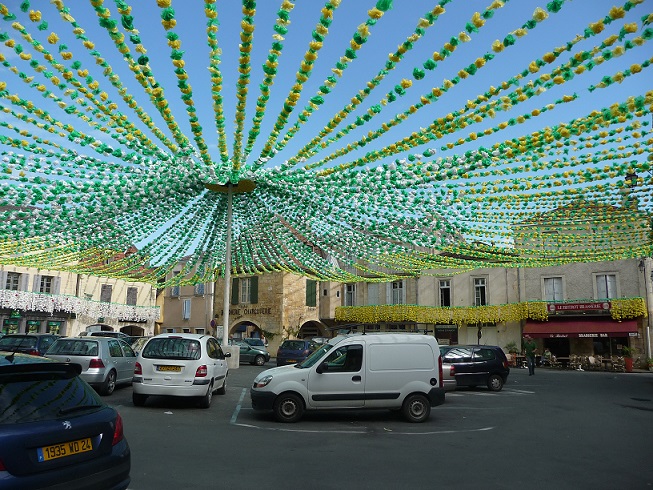
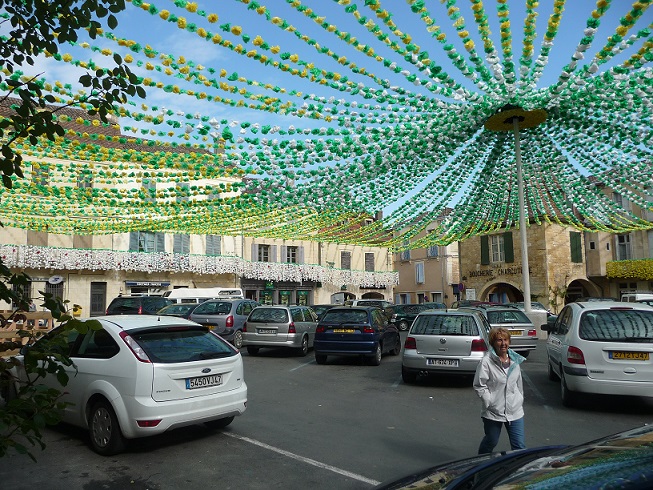
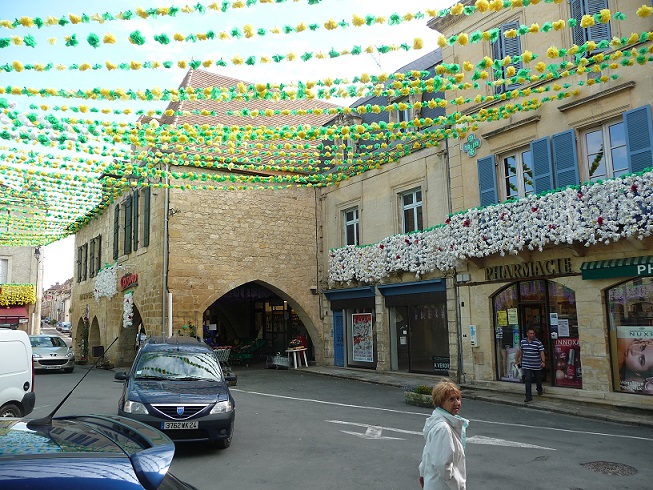
Here is an official link, click and enjoy your visit !
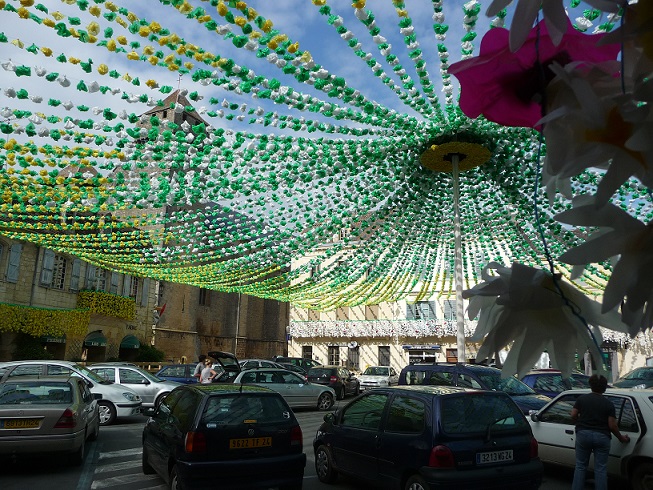
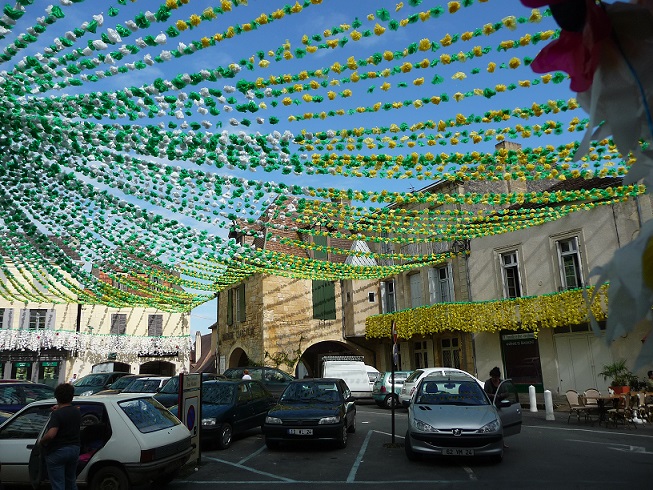
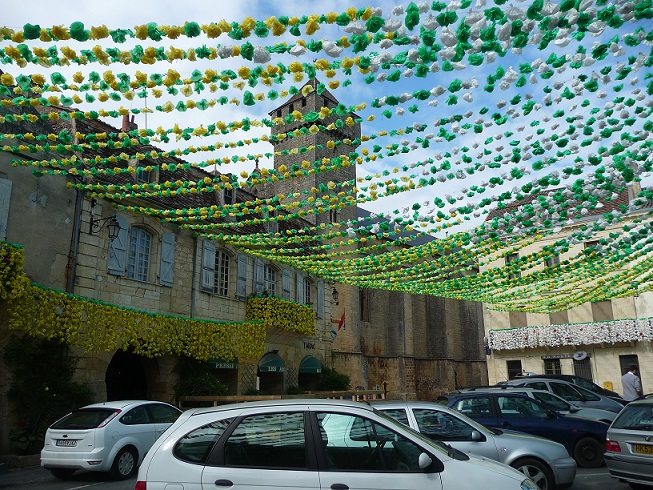
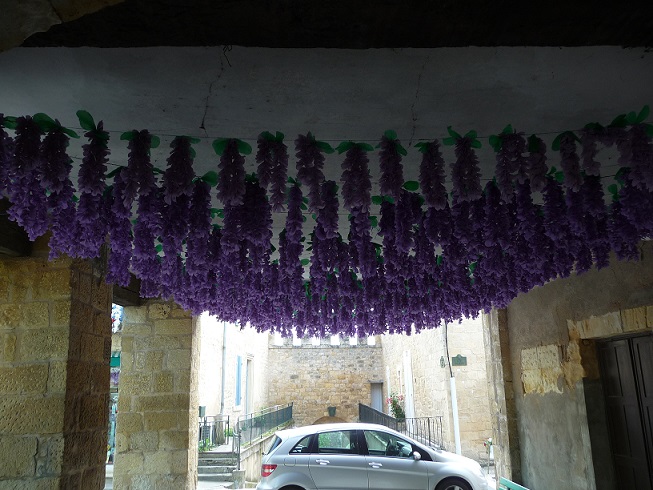
Personalities linked to the municipality
* Gabriel Aimé Robert Joubert (1898-1944), teacher in Beaumont engaged in the resistance, arrested on December 20, 1943, deported on January 22, 1944 from Compiègne to Buchenwald. Died in deportation to Buchenwald on September 16, 1944.
* Léo Testut (1849-1925), French doctor and anatomist, who carried out a historical and archaeological study of the bastide of Beaumont.









